government



WASHINGTON — It’s been three months since the Rev. Suzan Johnson Cook resigned as the State Department’s religious freedom watchdog, and those who decry religious persecution in Syria, Sudan, and elsewhere are wondering how long it’s going to take the White House to name a new ambassador-at-large for international religious freedom.
Many in the field hope it’s someone with a more diplomatic background than Johnson Cook, a former Clinton administration official and popular Baptist minister whose international experience was mostly acquired on the job.
The other factor: the more than two years it took for the Obama administration to choose Johnson Cook and to get her confirmed by the Senate.
“A continued vacancy will confirm the suspicion that already exists among foreign governments, persecutors, victims and American diplomats that the issue is not a priority,” said Thomas Farr, director of the Religious Freedom Project at Georgetown University’s Berkley Center for Religion, Peace, and World Affairs.
The White House has been tight-lipped about the timeline for a decision, as well as about any candidates it may be considering for the position, which Congress created in 1998 to highlight and alleviate religious persecution worldwide.
Here’s a short list of five names swirling around Foggy Bottom, culled from experts who work in the field and were asked who they see as likely to be under consideration, or as particularly qualified for the job.

The only way to win the “war on poverty” is for liberals and conservatives to make peace — for the sake of the poor. That would be the best way to mark the 50th anniversary of the war on poverty, declared by President Lyndon Johnson in his January 1964 State of the Union address. Making peace means replacing ideologies with solutions that actually solve the problems of poverty. With both Republicans and Democrats speaking out on poverty this week, and the recession slowly receding this should be an opportunity to find the focus, commitment, and strategies that could effectively reduce and ultimately eliminate the shameful facts of poverty in the world’s richest nation.
For any proposal, the basic question must be whether it helps more people and families rise out of poverty and realize their dreams. This means setting aside political self-interest and thinking beyond our too often inflexible ideologies.
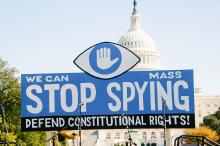
I was encouraged by the findings of U.S. District Court Judge Richard Leon on Monday who granted an injunction to plaintiffs Larry Klayman and Charles Strange that will temporarily stop the National Security Agency from continuing their data-gathering program that mines information from our mobile phone calls.
The injunction was issued because the judge believes that Klayman and Strange likely will win their lawsuit against the federal government, claiming that the phone record collection practice is an unconstitutional violation of personal privacy.
The whole storyline is made that much more dramatic since the otherwise secret program was leaked to the public by former NSA contract Edward Snowden, who is now on the run, seeking asylum in exchange for shared intelligence. And while some perceive Snowden as a hero of individual liberty, others vilify him as an enemy of the United States, much like any other terrorist. Interestingly, people’s opinions about the NSA — and, frankly, the Obama administration and the government as a whole — diverge in similar ways.
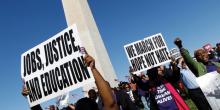
Last week, Half in Ten released its third annual report on its commitment to and efforts toward U.S. poverty reduction. The Half in Ten Campaign is a joint project of the Center for American Progress Action Fund, the Coalition on Human Needs, and The Leadership Conference on Civil and Human rights, with a mission to build political and public will to cut the nation’s poverty rate in half in 10 years.
In her remarks, Neera Tanden, president of the Center for American Progress, stressed the need to move the conversation in Washington away from implementing austerity measures that ultimately harm the poor.
Scripture also reminds us over and over again to care for the least of those in society, including widows, orphans, and immigrants in our midst. We are called to be generous with what we have. Labor Secretary Thomas Perez echoed this truth at the Half in Ten meeting, urging that at this time, we need to “turn toward one another, not against one another.”

AS FIGHTS ABOUT the budget and other economic issues are again riveting the nation’s capital, the rest of the country yawns. Possible government shutdowns, threats to default on our nation’s debt, and proposals to decimate food assistance for struggling Americans seem to be business as usual in Washington, D.C. These budget battles have become so frequent that it is tempting to dismiss it all as political posturing. But that would be a mistake.
The biggest challenge facing Congress should be a non-issue. The debt ceiling is simply the amount of debt the U.S. is legally allowed to hold. It is about paying off the bills that Congress has already incurred from past appropriations—not about giving permission for new government spending, as many people falsely assume. Congress has raised it nearly 100 times since the end of World War II, but it only recently became a political football. Because the consequences of not raising the debt ceiling and defaulting on our nation’s obligations could be catastrophic, some leaders have tried to leverage it for political gain. After the country came close enough to a default in 2011 to receive a credit downgrade, President Obama has responsibly refused to negotiate over raising it. His assumption is that GOP leaders in Congress wouldn’t throw the economy off the cliff for their own political gain. The American people are left watching this game of chicken and hoping somebody blinks.
While this is clearly a partisan game, the stakes couldn’t be higher. The U.S. has always honored its debts. Should the country default, the market turmoil and long-term effects could be catastrophic for the global economy. Domestically, it could throw the U.S. back into recession.
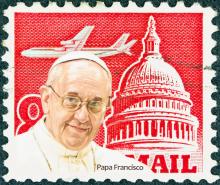
Suddenly, unexpectedly, and almost miraculously, the values of simplicity, humility, welcome, and the priority of the poor have burst on to the international stage. A new pope named Francis is reminding us that love is also a verb — choosing the name Francis because of his commitment to the poor, to peace, and creation in sharp contrast to the values of Washington, D.C.
Last week the House of Representatives voted to cut food stamps. The previous week marked the 5th anniversary of the financial collapse, and showed more American inequality than before the recession. And now we face a threatened shutdown of the government unless the health care promised to tens of millions of uninsured people is repealed.
Pondering all that, I saw the interview with Pope Francis in America magazine and his profile in the new issue of Sojourners. And from every direction, things that the new pope was saying were breaking through the political news cycle. Even my students at Georgetown were telling me that their young friends, Christians or not, were putting Francis quotes up on their Facebook pages.

SINCE WE NOW know the federal government has been monitoring our every move for years—recording our telephone calls, reading our emails, trying to friend us on Facebook (“you have 295,984,457 mutual friends!”)—I wanted to clarify a few personal remarks that may have been misconstrued by NSA computers; computers which, I might add, are doing a heckuva job.
When I emailed a friend that I thought I “killed” at a recent gathering, I meant that I was particularly amusing that evening. I was not bragging about some heinous crime, which I would never commit anyway because, frankly, that’s not where the laughs are.
But “killed” looks bad in cyberspace, even though it’s something comedians want to do, as opposed to “bombed,” which is the opposite of “killed,” although NSA computers probably recognize a certain similarity between the two and automatically alert law enforcement officials. But again, the word “bombed” is a comedy concept meaning, variously, “wishing you were dead as an audience sits silently in judgment,” or for me, who entertains mainly in the homes of friends, “wishing you were dead, because people are laughing about you in the kitchen.”
But living in a free society means we shouldn’t have to watch what we say to avoid the unwanted curiosity of federal authorities. Heck, I get into enough trouble just trying to cheer up taciturn gatherings. (“Hey, is this a party or a funeral, hah hah?! What? Oh, sorry, I didn’t notice the flowers. Yes, he’ll be missed.”) On second thought, maybe a few days of secret CIA interrogation might do me some good. (“Were you under instructions from al Qaeda when you embarrassed your host by juggling the dinner rolls? Are there other social events you plan to terrorize or disrupt in the near future?”)
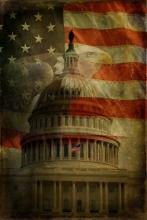
It is tragic to watch contemptuous right-wingers declaring war on America.
With little heed for consequences on either actual people or the national interest, they declare war on the poor, the hungry, Native Americans, the unemployed, gays and lesbians, immigrants, minority voters, women, military dependents, and public education.
The recent farm bill — which gives public subsidies to agribusiness and denies food stamps to the hungry — is just the latest sortie in a determined decades-long assault on American values.
An international consortium of nonbelievers is planning rallies Thursday outside Bangladeshi embassies and consulates to demand the release of several Bangladeshi bloggers who were arrested on charges of blasphemy.
The rallies are in support of four Bangladeshi men arrested earlier this month for “hurting religious sentiments,” a crime tied to an 1860 law that can carry up to 10 years in jail.
The four men — all bloggers — staged a sit-in at a public square demanding a ban on the country’s largest Islamic political party; Islam is the official state religion in Bangladesh.
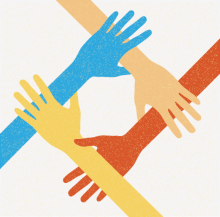
In the past 20 years, the world has witnessed the death of social contracts. We have seen a massive breakdown in trust between citizens, their economies, and their governments. In our own country, we can point to years of data painting a bleak picture of the confidence Americans have in any of our traditional institutions.
Former assumptions and shared notions about fairness, agreements, reciprocity, mutual benefits, social values, and expected futures have all but disappeared. The collapse of financial systems and the resulting economic crisis not only have caused instability, insecurity, and human pain; they have also generated a growing disbelief and fundamental distrust in the way things operate and how decisions are made.
This week at the World Economic Forum in Davos, Switzerland, we are looking to the future and asking “what now?” At a Saturday session — “The Moral Economy: From Social Contract to Social Covenant” — a document will kick off a year-long global conversation about a new “social covenant” between citizens, governments, and businesses.
This is really “a call” for worldwide discussion about what values are needed to address the many difficult challenges and choices the world is now facing. Inequality, austerity, retrenchment, constraints, mal-distribution, growing conflicts over resources, and extreme poverty all raise questions about our values.
DC-based pastor and former Sojourners staff member, Rev. Aaron Graham unpacks what it means to have faith and serve in government for The Washington Post:
It breaks my heart today to see how often politics shapes our faith, rather than faith shaping our politics. Over the years the church in America has become so biblically illiterate that we are often being more influenced by cultural and political trends than we are by the Word of God.
Read his full article here

Despite all that I knew 40 years ago about the policy and politics of the Vietnam war, I learned much more by simply listening to veterans. Late at night, often in bars, I heard about the war from the experience of those who fought it. And that taught me more than everything I had ever read. With tens of thousands of vets coming home from Iraq in the next two months -- and many more returning from Afghanistan over the next two years -- we'll have plenty of opportunities to say thanks, and then just listen.
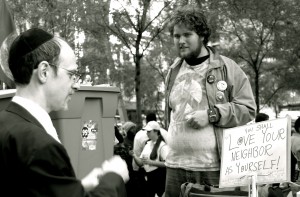 We're in this thing together or we're not in this thing at all.
We're in this thing together or we're not in this thing at all.
We should all be marching in the streets.
We are the 100 percent.
We are poor. We are well-to-do. We are those somewhere in the middle. We are aware of the struggles and unfairness of this world and for this reason we are sensitive to one another's needs. So, we love our neighbors as ourselves.
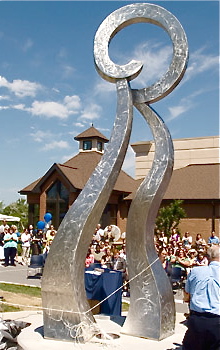
Our moral strength as a society comes from how we treat vulnerable populations. The rise of programs such as Medicaid and Head Start has allowed the independent living movement among those with disabilities to flourish and groups such as Heritage Christian Services do their life-changing work
But here's the problem: Heritage Christian Services just saw their funding cut by the federal government and they are concerned that worst of the cuts are yet to come.
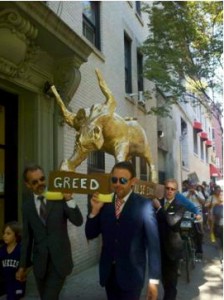 Editor’s Note: In light of the recent protests at #OccupyWallStreet and around the world, we have revisited Jim Wallis’ 2010 book Rediscovering Values: On Wall Street, Main Street, and Your Street and picked out some passages that are particularly pertinent to what we are seeing in our nation today.
Editor’s Note: In light of the recent protests at #OccupyWallStreet and around the world, we have revisited Jim Wallis’ 2010 book Rediscovering Values: On Wall Street, Main Street, and Your Street and picked out some passages that are particularly pertinent to what we are seeing in our nation today.
The Passover of the Jews was near, and Jesus went up to Jerusalem. In the temple he found people selling cattle, sheep, and doves, and the money changers seated at their tables. Making a whip of cords, he drove all of them out of the temple, both the sheep and the cattle. He also poured out the coins of the money changers and overturned their tables. He told those who were selling the doves, “Take these things out of here! Stop making my Father’s house a marketplace!” His disciples remembered that it was written, “Zeal for your house will consume me.”
– John 2:13-17
Interestingly, in his turning over of tables, Jesus specifically targeted the merchants who were selling doves. Doves were the least expensive sacrifice permitted to be offered in the temple, and, therefore, were often bought by the poorest of the pilgrims.
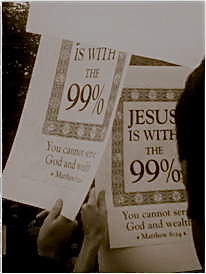
[When Jesus turns over the tables] we see a man enraged at injustice and passionately confronting those who exploit the poor. We also learn that there are some things that we all should get angry about, that there are situations where the only appropriate response is confrontation…
 First, we were sold a lie. We were sold an illusion that promised the American Dream was as close as our next purchase. That we could pursue our selfish interests without thought to the consequences, because the “invisible hand” would work it all out in the end. We were told that we did not need to work for wealth, that it would come if only we put our money in the hands of the right stock broker, mutual fund, or stock…
First, we were sold a lie. We were sold an illusion that promised the American Dream was as close as our next purchase. That we could pursue our selfish interests without thought to the consequences, because the “invisible hand” would work it all out in the end. We were told that we did not need to work for wealth, that it would come if only we put our money in the hands of the right stock broker, mutual fund, or stock…
Second, the rules of the game failed. It was supposed to be simple. Work hard, get ahead, buy a home, and tuck some money away for the future in a 401(k). If you followed those rules, everything would work in your favor. But good jobs have disappeared, wages have been garnished, and 401(k) savings have disappeared. The rules of the game seem to have worked for those who set the rules, but not for those who played by them.
Third, our good was supposed to trickle down. We were promised that as the rich got richer, the rest of the country would prosper as well. If we handed our finances and ultimately our lives over to those who knew the market the best, it would benefit us all. If we took the virtues of the market and made them the virtues of our lives, we, too, would experience boundless prosperity. Fulfillment would come if we could just trust the market enough to work for us…
 The market has become our “golden calf,” our idol of ultimate allegiance… This is when God—and then Moses—got angry. Why? Just because they built a golden calf? No. The calf could have been just a work of art, a statue to enjoy. What made the calf an idol was that the people gave the newly created calf the credit for leading them out of Egypt. They gave to the golden calf credit and attributes that belong only to God…
The market has become our “golden calf,” our idol of ultimate allegiance… This is when God—and then Moses—got angry. Why? Just because they built a golden calf? No. The calf could have been just a work of art, a statue to enjoy. What made the calf an idol was that the people gave the newly created calf the credit for leading them out of Egypt. They gave to the golden calf credit and attributes that belong only to God…
Today, instead of statues, we have hedge funds, mortgage- backed securities, 401(k)s, and mutual funds. We place blind faith in the hope that the stock indexes will just keep rising and real estate prices keep climbing. Market mechanisms were supposed to distribute risk so well that those who were reckless would never see the consequences of their actions. Trust, security, and hope in the future were all as close to us as the nearest financial planner’s office. Life and the world around us could all be explained with just the right market lens. These idols were supposed to make us happy and secure and provide for all our needs. Those who manage them became the leaders to whom we looked, not just for financial leadership, but direction for our entire lives. That is idolatry.
Rich and poor alike were sucked into making heroes out of those who seemed to be able to turn everything they touched into gold. Holocaust survivor and Nobel Peace Prize recipient Elie Wiesel lost virtually all of his personal wealth and his foundation’s, up to $37 million, to Bernie Madoffs Ponzi scheme. “We gave him everything, we thought he was God, we trusted everything in his hands.”‘
(All pictures are courtesy of Catholics United, who produced the ‘golden calf’. Extracts come from pages 19-29 of the hardcover edition of Rediscovering Values.)
USA Today's religion reporter Cathy Lynn Grossman has a great post this morning looking at coverage of the spiritual import of the #OccupyWallStreet protests from the perspective of several religious commentators, including Catholic writer/professor Tom Beaudoin and Jewish writer/actor Jake Goodman.
"'The fruit for which your soul longed has gone from you, and all your dainties and your splendor are lost to you, never to be found again!' The merchants of these wares, who gained wealth from her, will stand far off, in fear of her torment, weeping and mourning aloud ..."
-- Revelation 18:14-15
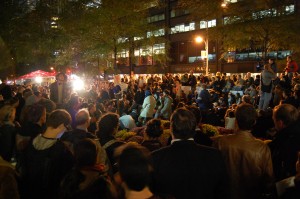 Throughout the day here at the #OccupyWallStreet mass demonstrations in New York's financial district, you can find small and often somber groups meeting.
Throughout the day here at the #OccupyWallStreet mass demonstrations in New York's financial district, you can find small and often somber groups meeting.
They have agendas, a facilitator, a time keeper, and someone to keep track of the "stack" -- the list of people waiting to make a point or ask a question.
And they also have a system of hand gestures -- a sort of gonzo sign-language adaptation of Roberts Rules of Order -- designed to keep the discussion and decision-making process both democratic and efficient.
When someone agrees with a point the speaker is making, the crowd raises two hands in agreement. When the crowd disagrees, hands quickly go up, making a downward pointing motion. To call a "point of process" crowd members shape their hands into a triangle to stop discussion. Speakers who wander off topic are quickly redirected and reminded of the point being discussed in the agenda.
These working groups bring their recommendations to the #OccupyWallStreet General Assembly, which takes place once a day. A vote is taken to determine consensus before a recommendation is passed along to the G.A.
Anyone participating in the General Assembly can block a proposal by forming an X with their arms. Participants make their case and then a revised proposal is put forth. The revised proposal can then be passed with a 90/10 consensus.